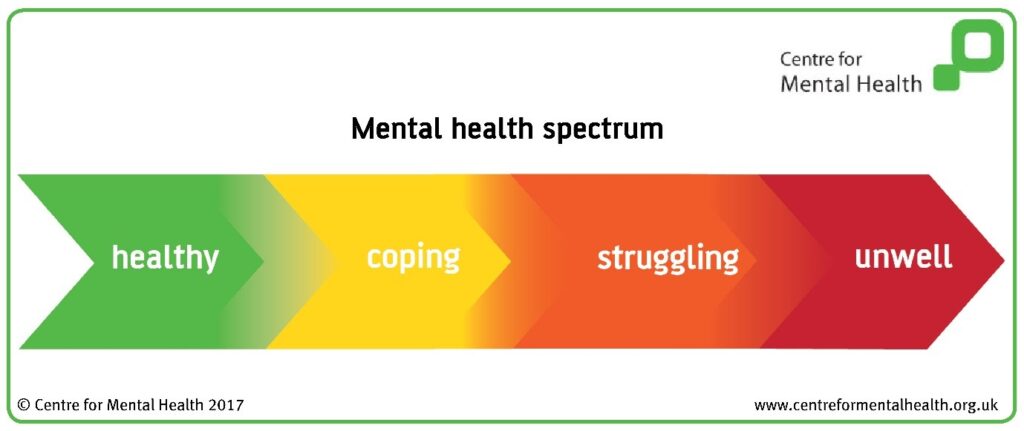Defining mental health
The World Health Organisation defines mental health as:
“Mental health is a state of mental well-being that enables people to cope with the stresses of life, realize their abilities, learn well and work well, and contribute to their community. It is an integral component of health and well-being that underpins our individual and collective abilities to make decisions, build relationships and shape the world we live in. Mental health is a basic human right. And it is crucial to personal, community and socio-economic development.
Mental health is more than the absence of mental disorders. It exists on a complex continuum, which is experienced differently from one person to the next, with varying degrees of difficulty and distress and potentially very different social and clinical outcomes.”
Good mental health is the foundation for wellbeing. Although closely related, mental health and mental wellbeing are not the same. Mental wellbeing widens the lens and considers external factors that can impact a person’s sense of self and experience of day-to-day life such as, strong relationships, social interactions, work environment and physical activities.

The Centre for Mental Health defines these as:
Healthy: enjoying mostly good mental health.
Coping: facing significant risks to mental health but not currently in difficulty. This may include people coping with loss or bereavement, financial difficulty, or relationship problems.
Struggling: dealing with major life challenges and at high risk of becoming unwell. This might include having experienced a major trauma or ongoing high levels of adversity.
Unwell: experiencing poor mental health, such as being given a diagnosis of mental illness that is currently causing significant distress and impairment. It is, however, possible for a person living with a mental health diagnosis to be at any point on the spectrum.
Mental illness can look different for each person. While some symptoms are universal, the cause of the illness, and the impact it has are unique to each individual. Many people have mental health struggles from time to time. But a mental health concern becomes a mental illness when ongoing signs and symptoms cause frequent stress and significantly affects daily life.






